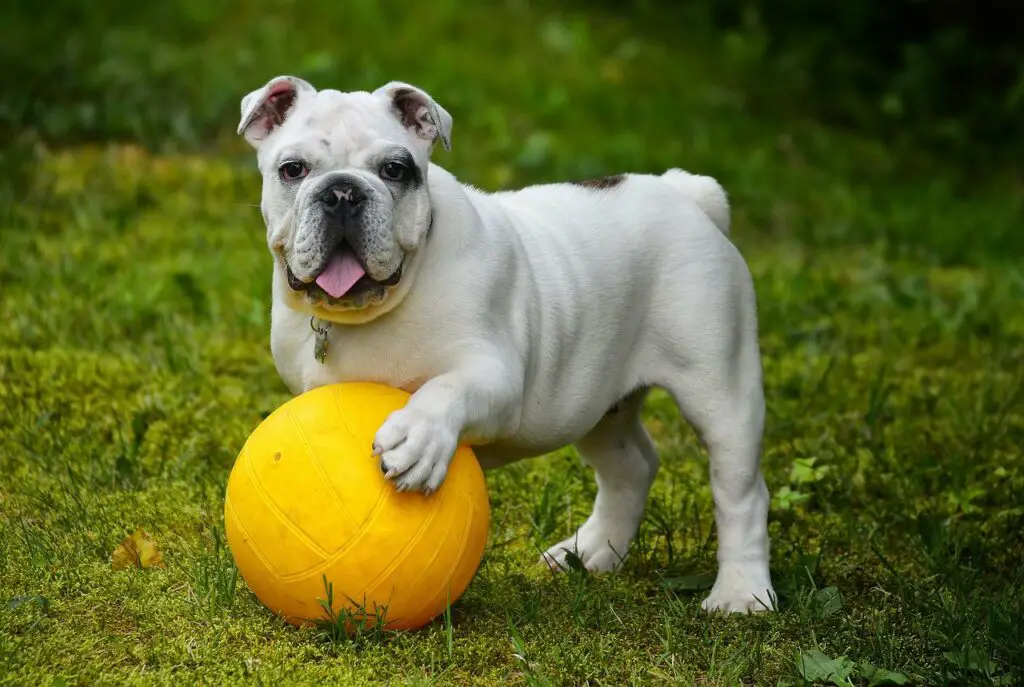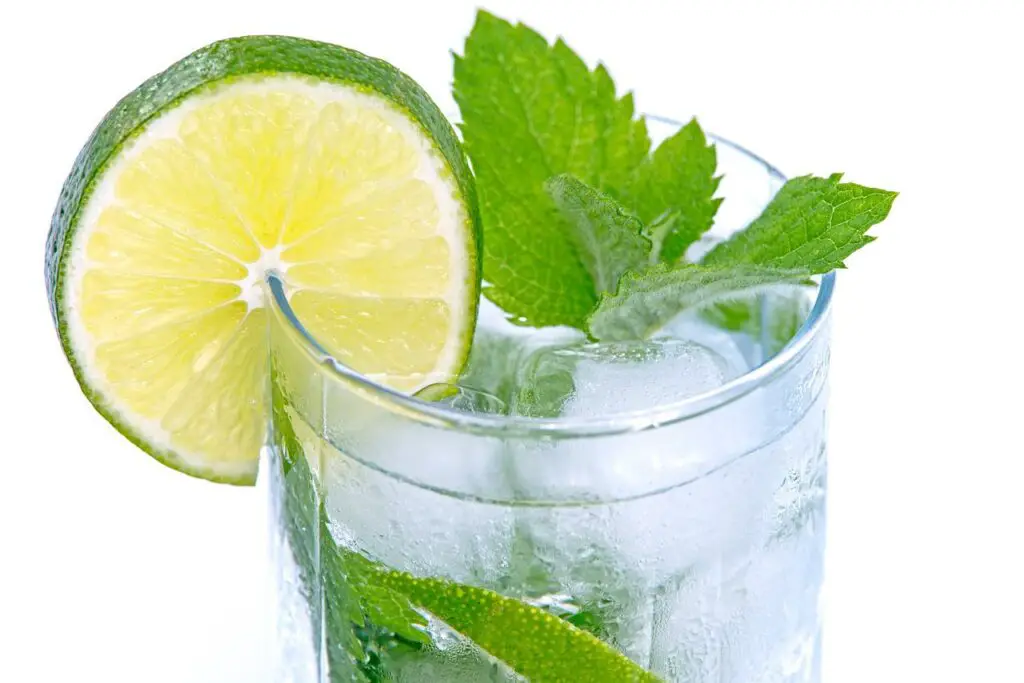The internet is awash with the benefits of drinking lemon water.
Lemon water is an excellent source of vitamin C, boosts quick healing, supports the immune system and even aids in weight loss.
Such remarkable benefits will tempt you to share this wonder drink with your pet dog.
So, can dogs drink lemon water?
No, dogs shouldn’t have lemon water, but occational treats won’t hurt.
Dogs hate lemons due to the bitter taste, as they associate it with bad or rotten food.
That natural reaction helps reduce the risk of your dog eating poisonous contents.
Lemons and lime contain psoralens, especially in the rind, which is harmful to dogs.
Some dogs may appear to play around with the uncut lemon, but it is primarily out of curiosity.
You’ll rarely find a dog that likes eating citric fruit.
Here is all you need to know about why you shouldn’t give your dog lemon water.
Let us explore healthier and safer options that will keep your pup quenched and happy, plus the impact of lemon water on dogs.

Why is lemon water harmful to dogs?
Toxicity
Lemons have two ingredients that can cause fatal effects on dogs when ingested in large amounts.
- Psoralens: this chemical found in lemons, especially the rind, can affect your dog adversely. The effects are gastrointestinal issues which include vomiting and diarrhea.
- Limonene and linalool: this is another property in lemon. Limonene is an essential oil found in lemons and other citric fruits and has insecticidal contents which can poison your dog and cause liver damage and failure.
Symptoms of toxicity in dogs include;
- Vomiting
- Diarrhea
- Excessive drooling
- Weakness and may collapse
- lethargy
- Cold limbs
- Skin irritation or rashes
- Tremors
- Photosensitivity
- Loss of coordination
Adverse effects include;
- Low blood pressure
- Liver failure
- Death
The citric acid in lemon water, especially in large quantities, is harmful to dogs.
Effects include;
- It affects the central nervous system
- Disrupts the dog’s bowel movements
- Increase in blood sugar
- Stomach upset
- Diarrhea
- Vomiting
Xylitol sometimes used to sweeten the lemon water, is poisonous to dogs.
Acidity
You must have had acidity at one point and agree that it is a terrible feeling.
Lemon water would cause your dog acid reflux.
Signs of acidity in dogs include;
- Low appetite
- Food regurgitation
- Discomfort and restlessness
- Vomiting especially bile
- Licking the lips or trying to lick the air
- crying/ whining when swallowing
- Grinding their teeth
Dental problems
Lemon water is bitter and usually needs sugar and sweeteners to make the taste enjoyable.
The sugar in the lemon water can cause tooth decay.
The acidity in the lemon water also erodes the enamel.
Unhealthy weight gain
The sugar in the lemon water makes the drink unhealthy and can lead to unhealthy weight gain.
Taste
Dogs do not like sour and bitter foods, and they usually associate this taste with bad and rotten food.
Dogs are sensitive to sour taste and will not willingly eat or drink it.

Healthy and hydrating substitutes for lemon water
Juiced or blended fruit juice
Homemade juice is safe and provides your pup with much-needed vitamins.
Strawberries and apples are common fruits juiced to make a healthy refreshing drink.
Make it healthier by adding broccoli, carrots, and sweet potatoes.
Homemade juice is nutrient-packed and safe for your pup.
Avoid store juices as they contain preservatives, added colors, sugar and sweeteners like xylitol which is poisonous to your pet.
Avoid grapes and grape juices as your dog is deathly allergic.
Symptoms include lethargy, stomach pain, diarrhea and vomiting.
Visit a vet immediately.
Juiced and blended vegetables
Celery, spinach, kale, beetroots, carrots, and broccoli are some vegetables that make healthy and refreshing drinks for your furry friend.
Add fruits like apples and strawberries to sweeten the juice naturally.
Beef and chicken broth
Beef and chicken broth is a nutritious substitute taken hot or cold.
The broth is therapeutic and soothes stomach distress in dogs.
Nut milk
Dogs are lactose intolerant and shouldn’t take milk.
However, milk made from nuts like soy, almond and coconut lacks lactose and is friendly to your fur baby.
Coconut water
Coconut water is full of essential minerals, vitamins and electrolytes, making it a top drink beneficial to a dog’s health.
Coconut water helps fight viruses, boosts your dog’s immune system and gives your pup shiny fur.
Coconut water is a safer way of getting rid of that terrible doggy breath.
Frequently asked questions
Are there any health benefits to giving your dog lemon water?
In minimal doses, lemon water is okay for dogs to take occasionally.
The lemon helps with your dog’s bad breath.
Lemon water is also high in vitamin C.
You have to be cautious not to give more than a splash as the effects outweigh the benefits.
Can you use lemon water externally on your dog?
Yes.
However, ensure your fur buddy does not ingest the drink.
You can use lemon water to clean your dog’s fur, getting rid of allergens.
The antibacterial contents in the lemon juice can help heal minor scratches and cuts on your dog.
The lemon juice is also an excellent flea repellant.
Pouring lemon water on some things that your puppy is not supposed to eat, like poop, keeps them away.
What should you do when your dog ingests lemon water?
The effects depend on the amount taken.
Keep your dog hydrated with plain water if vomiting or diarrhea.
Take your dog to the vet immediately.
What are safer options for lemon water?
Water is the safest drink your dog can have.
You can also give your pup juiced fruits and vegetables.
Other options are cooled vegetables, beef or chicken broth, nut milk and coconut water.
Final thoughts
In short, don’t feed lemon water to your dog.
Some people find it amusing to give a piece of lemon to their dogs, to see its reaction.
Don’t do this. It’s cruel and could potentially harm your dog.
Luckily, most dogs do not like the smell and taste of lemon and will avoid these fruits without coercion.
- What Dog Breeds Have Pink Skin? - March 24, 2023
- What Are the Most Inspiring Dog Breeding Quotes? - March 20, 2023
- Can Pheromone Spray Help Improve Dog Breeding Results? - March 19, 2023








